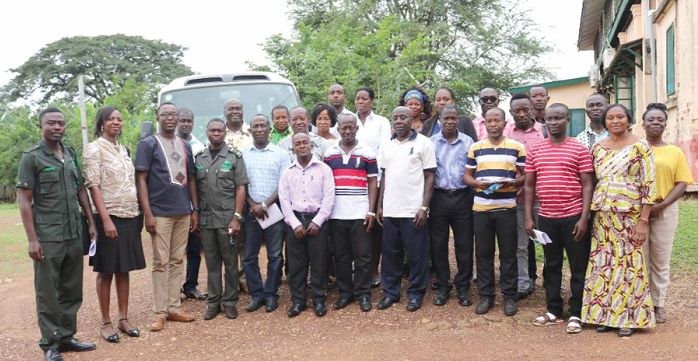
EU provides funds to halt illegal timber logging
The European Union (EU) has provided a grant of us$100,000 to help train and equip independent monitoring teams (IMT) to halt the rising illegal timber logging in Ghana's forests.
The intervention has become necessary due to massive deforestation in the country in recent years.
The programme, which will run for 14 months (October 2017 to December 2018), is being piloted in three forest districts — Asankragwa, Goaso and Mpraeso in the Western, Brong Ahafo and Eastern regions, respectively.
The exercise is being spearheaded by a non-governmental organisation, Rural Development Youth Association (RUDEYA), through the supervision of the Resource Management Support Centre of the Forestry Commission (FC).
Other collaborators are the Timber Validation Department, the National Forest Forum and Forest Watch Ghana.
Read also: ‘Okada’ riders doing brisk business at closed Yapei, Buipe bridges
Significance
The project is in tandem with an EU-Food and Agriculture Organisation Forest Law Enforcement, Governance and Trade (FLEGT) programme which seeks to reduce and eventually eliminate illegal logging.
It is also to ensure that all timber or timber products imported into the EU are in compliance with Ghana’s forest laws and legally verifiable through a FLEGT licensing system.
The project is also to decrease illegal logging and conform to the Sustainable Development Goals (SDGs) by alleviating poverty (SDG 1), ensuring food security (SDG 2), mitigating climate change (SDG 13) and managing forests sustainably (SDG 15).
Event
At an inception workshop in Kumasi for over 40 stakeholders drawn from across the three forest districts, the Executive Director of RUDEYA, Dr Harris Andoh, said the formation of the monitoring teams would provide oversight responsibilities over timber operations at their respective localities.
“These are individuals with good reputation in their communities who have no political affiliation and are also not working in the timber market chain,” he said.
According to him, the formation of the groups was also in line with the FC’s guidelines on Civil Service Monitoring 2012, which states that “a credible legality assurance system (LAS) must include a coordinated civil society and community-led monitoring process”.
